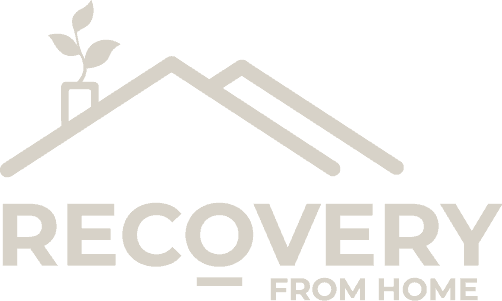Addiction is a pervasive issue that affects individuals across all demographics in South Africa, casting a long shadow over educational pursuits and professional ambitions. As the nation grapples with high unemployment rates and a pressing need for skilled workers, the impact of substance abuse on learning and career development has become increasingly concerning. This article delves into the multifaceted ways addiction interferes with academic progress and occupational success, exploring the challenges faced by students and professionals alike in the unique context of South African society.
The complex interplay between substance abuse, educational attainment, and career trajectory creates a troubling cycle that can be difficult to break. From the classrooms of rural schools to the boardrooms of urban corporations, the effects of addiction ripple through every level of South African society, hindering personal growth and national progress. By examining these issues in depth, we can begin to understand the scope of the problem and identify potential solutions to support those affected by addiction in reclaiming their educational and professional aspirations.
As we navigate through the various aspects of this critical issue, it’s essential to approach the topic with empathy and an open mind. Addiction is not a moral failing but a complex health condition that requires comprehensive understanding and support. By shedding light on how substance abuse impacts education and careers in South Africa, we can work towards creating more effective interventions and fostering a society that provides second chances and pathways to recovery.
The Educational Toll of Addiction
The impact of substance abuse on education in South Africa is profound and far-reaching. Students grappling with addiction face numerous obstacles that can derail their academic journey and limit their future prospects. Let’s explore the various ways in which addiction takes its toll on educational pursuits:
Cognitive Impairment and Learning Difficulties
Substance abuse can significantly impair cognitive functions crucial for academic success. Students struggling with addiction often experience:
- Difficulty concentrating during lessons
- Impaired memory retention and recall
- Reduced problem-solving abilities
- Slower processing of new information
These cognitive deficits can lead to a decline in academic performance, making it challenging for students to keep up with their peers and meet educational milestones. As the effects of addiction accumulate over time, the gap in learning widens, potentially leading to academic failure and dropout.
Attendance and Engagement Issues
Addiction frequently disrupts regular school attendance, a critical factor in educational success. Students battling substance abuse may:
- Skip classes to use drugs or alcohol
- Arrive late due to hangovers or withdrawal symptoms
- Miss entire school days recovering from binges
- Struggle to engage in classroom activities when present
Consistent absenteeism not only affects individual learning but can also disrupt the educational environment for other students. Teachers may find it challenging to maintain continuity in lessons when dealing with frequently absent or disengaged students.
Social and Behavioral Challenges
The social aspects of addiction can create additional barriers to education:
- Isolation from peers who don’t engage in substance use
- Bullying or stigmatization by classmates
- Conflicts with teachers and school administrators
- Formation of negative peer groups that reinforce addictive behaviors
These social challenges can lead to a sense of alienation from the school community, further diminishing a student’s motivation to attend and participate in educational activities.
Impact on Educational Resources
Schools in South Africa, particularly in underprivileged areas, often struggle with limited resources. The presence of addiction among students can strain these resources further:
- Diversion of funds to security measures to combat drug-related issues
- Increased need for counseling and support services
- Time and energy spent by educators managing addiction-related behavioral problems
These factors can detract from the overall quality of education provided to all students, not just those directly affected by addiction.
By understanding the multifaceted impact of addiction on education, we can begin to develop targeted interventions to support students and create more resilient educational environments. Addressing these challenges is crucial for ensuring that all South African youth have the opportunity to fulfill their academic potential and build a strong foundation for their future careers.
Career Aspirations Derailed
The journey from education to a successful career is often fraught with challenges, but addiction can turn these challenges into insurmountable obstacles. In South Africa, where unemployment rates are already high, the impact of substance abuse on career aspirations is particularly devastating. Let’s explore how addiction interferes with professional goals and career development:
Job Search Struggles
For individuals battling addiction, the process of finding employment can be exceptionally difficult:
- Gaps in employment history due to substance abuse
- Difficulty maintaining a professional appearance during interviews
- Inability to pass pre-employment drug screenings
- Lack of references due to burned bridges from past addictive behaviors
These factors can severely limit job opportunities, pushing individuals further away from their career aspirations and potentially into a cycle of unemployment and continued substance abuse.
Workplace Performance Issues
Even when individuals with addiction secure employment, maintaining their positions can be challenging:
- Decreased productivity due to impaired cognitive function
- Frequent absenteeism or tardiness
- Poor decision-making that affects job performance
- Strained relationships with coworkers and supervisors
These issues often lead to disciplinary actions, missed opportunities for advancement, or outright job loss, further derailing career aspirations.
Professional Development Roadblocks
Addiction can hinder an individual’s ability to grow professionally:
- Lack of focus on skill development and learning
- Missed opportunities for training and certification programs
- Inability to take on additional responsibilities or leadership roles
- Diminished networking capabilities due to social isolation
Without continuous professional development, individuals may find themselves stagnating in their careers or falling behind in rapidly evolving industries.
Financial Instability and Career Choices
The financial toll of addiction can force individuals to make career decisions based on immediate needs rather than long-term aspirations:
- Accepting lower-paying jobs to make ends meet
- Inability to invest in education or training for career advancement
- Accumulation of debt that limits career mobility
- Pressure to engage in illegal activities for quick financial gain
These financial pressures can trap individuals in unfulfilling jobs or push them towards career paths that don’t align with their true aspirations.
By recognizing how addiction derails career aspirations, we can begin to develop support systems and interventions that address these specific challenges. Helping individuals overcome addiction is not just about personal health; it’s about unlocking the potential for fulfilling careers and contributing to South Africa’s economic growth.
The Cycle of Addiction and Unemployment
In South Africa, the relationship between addiction and unemployment forms a vicious cycle that can be difficult to break. This cycle not only affects individuals but also has far-reaching consequences for families, communities, and the nation as a whole. Understanding this cycle is crucial for developing effective interventions and support systems.
The Unemployment-Addiction Nexus
Unemployment can be both a cause and a consequence of addiction:
- Job loss leading to increased substance use as a coping mechanism
- Addiction causing job loss and difficulty in securing new employment
- Long-term unemployment contributing to feelings of hopelessness and increased substance abuse
- Substance abuse hindering job search efforts and interview performance
This cyclical nature of addiction and unemployment can trap individuals in a downward spiral that becomes increasingly difficult to escape over time.
Economic Pressures and Substance Abuse
The economic challenges faced by many South Africans can exacerbate addiction issues:
- Financial stress leading to increased alcohol and drug use
- Lack of access to healthcare and mental health support
- Prevalence of cheap, dangerous substances in economically disadvantaged areas
- Limited recreational and social opportunities in impoverished communities
These economic factors create an environment where substance abuse can flourish, further complicating efforts to break the cycle of addiction and unemployment.
Social Stigma and Employment Barriers
The stigma associated with addiction can create significant barriers to employment:
- Employer reluctance to hire individuals with a history of substance abuse
- Discrimination against recovering addicts in the workplace
- Lack of support for individuals in recovery seeking to re-enter the workforce
- Self-stigma leading to reduced confidence in job-seeking efforts
Addressing these stigmas is essential for creating a more inclusive job market that provides opportunities for recovery and reintegration.
Impact on Skill Development and Employability
Long-term addiction can severely impact an individual’s employability:
- Erosion of job-related skills during periods of substance abuse
- Gaps in work history that are difficult to explain to potential employers
- Missed opportunities for education and training due to addiction
- Difficulty adapting to changing job market demands while battling addiction
These factors can make it increasingly challenging for individuals to compete in South Africa’s job market, perpetuating the cycle of unemployment and addiction.
By recognizing the complex interplay between addiction and unemployment, we can begin to develop more holistic approaches to addressing both issues simultaneously. Breaking this cycle requires coordinated efforts from government agencies, employers, healthcare providers, and community organizations to create pathways out of addiction and into stable, fulfilling employment.
Substance Abuse in South African Schools
The prevalence of substance abuse in South African schools is a growing concern that threatens the educational foundation of the nation’s youth. From urban centers to rural communities, the issue permeates various educational settings, creating challenges for students, educators, and administrators alike. Understanding the scope and nature of this problem is crucial for developing effective prevention and intervention strategies.
Common Substances and Trends
The landscape of substance abuse in schools is diverse and ever-changing:
- Alcohol remains a prevalent issue, often seen as a gateway to other substances
- Cannabis use is widespread, with perceptions of its harmlessness increasing
- “Tik” (methamphetamine) has become a significant problem, particularly in certain regions
- Prescription drug abuse, including opioids and stimulants, is on the rise
- New psychoactive substances continually emerge, challenging prevention efforts
Staying informed about these trends is essential for educators and policymakers to develop targeted interventions and education programs.
Factors Contributing to Substance Abuse in Schools
Several factors contribute to the prevalence of substance abuse in South African schools:
- Peer pressure and the desire to fit in with social groups
- Academic stress and the use of substances as a coping mechanism
- Lack of parental supervision or unstable home environments
- Easy accessibility of drugs in and around school premises
- Limited recreational activities and after-school programs
Addressing these underlying factors is crucial for creating a comprehensive approach to prevention and intervention.
Impact on School Environment
Substance abuse significantly affects the overall school environment:
- Disruption of classroom activities and learning processes
- Increased incidents of violence and disciplinary issues
- Strain on teacher-student relationships and trust
- Negative influence on non-using students
- Diversion of school resources to address substance-related problems
These impacts create a challenging atmosphere for learning and personal development, affecting all students, not just those directly involved in substance abuse.
Prevention and Intervention Strategies
Schools across South Africa are implementing various strategies to combat substance abuse:
- Comprehensive drug education programs integrated into the curriculum
- Regular drug testing and screening procedures
- Partnerships with local law enforcement for monitoring and intervention
- Establishment of student support groups and counseling services
- Training for teachers to recognize signs of substance abuse and provide support
While these strategies show promise, their effectiveness varies, and continuous evaluation and adaptation are necessary to address the evolving nature of substance abuse in schools.
By acknowledging the pervasive nature of substance abuse in South African schools and understanding its multifaceted impacts, we can work towards creating safer, more supportive educational environments. This effort requires collaboration between schools, families, communities, and policymakers to develop comprehensive solutions that protect students and promote healthy development.
Overcoming Addiction for Career Success
While addiction can significantly derail career aspirations, recovery is possible, and many individuals have successfully overcome substance abuse to achieve professional success. The journey from addiction to career fulfillment is challenging but rewarding, requiring dedication, support, and strategic planning. Here are key aspects of overcoming addiction to reclaim and advance one’s career:
Embracing Recovery as a Foundation
Recovery from addiction is the crucial first step towards rebuilding a career:
- Committing to sobriety and maintaining it through support systems
- Addressing underlying mental health issues that may have contributed to addiction
- Developing healthy coping mechanisms for stress and challenges
- Rebuilding self-esteem and confidence essential for professional growth
A solid foundation in recovery provides the stability necessary to focus on career development and pursue professional goals.
Skill Development and Education
Many individuals find that overcoming addiction opens new opportunities for learning and growth:
- Identifying skills that may have been neglected during addiction
- Pursuing educational opportunities to fill knowledge gaps
- Engaging in vocational training programs tailored for recovering addicts
- Developing soft skills crucial for workplace success, such as communication and time management
Investing in skill development and education can significantly enhance employability and open doors to new career paths.
Building a Supportive Professional Network
Creating a network of supportive professionals can be invaluable for career recovery:
- Connecting with mentors who understand the challenges of addiction recovery
- Joining professional associations that offer resources and networking opportunities
- Engaging with support groups that focus on career development for recovering addicts
- Cultivating relationships with colleagues who encourage personal and professional growth
A strong support network can provide guidance, opportunities, and motivation throughout the career rebuilding process.
Addressing Employment Gaps and History
Honesty and strategic communication are key when addressing addiction-related gaps in employment:
- Focusing on skills and experiences gained during recovery
- Highlighting volunteer work or part-time jobs undertaken during treatment
- Being prepared to discuss recovery in a positive, forward-looking manner
- Utilizing functional resumes that emphasize skills over chronological work history
By framing past challenges as opportunities for growth, individuals can present themselves as resilient and valuable employees.
Embracing Second Chance Opportunities
Many organizations and programs in South Africa offer second chance opportunities for individuals in recovery:
- Seeking out employers known for inclusive hiring practices
- Exploring entrepreneurship and self-employment options
- Participating in government-sponsored employment programs for recovering addicts
- Considering careers in addiction counseling or social services that value lived experience
These opportunities can provide a supportive environment for career reentry and growth.
Continuous Personal and Professional Development
Recovery and career success require ongoing commitment to growth:
- Setting realistic short-term and long-term career goals
- Regularly reassessing and adjusting career plans as needed
- Staying informed about industry trends and developments
- Seeking out opportunities for additional training and certifications
Continuous development ensures that individuals remain competitive in the job market and continue to advance in their chosen fields.
By approaching career recovery with determination, openness, and strategic planning, individuals can overcome the challenges posed by addiction and achieve professional success. The journey may be difficult, but with the right support and resources, it is possible to transform past struggles into strengths that contribute to a fulfilling and prosperous career.
Career Barriers Due to Substance Abuse
Substance abuse creates numerous barriers that can impede career progress and limit professional opportunities. These obstacles often extend beyond the immediate effects of addiction, creating long-lasting challenges that individuals must navigate as they seek to establish or rebuild their careers. Understanding these barriers is crucial for developing effective strategies to overcome them and achieve career success.
Legal Consequences and Criminal Records
One of the most significant career barriers resulting from substance abuse is involvement with the legal system:
- Criminal records making it difficult to pass background checks
- Loss of professional licenses or certifications due to drug-related offenses
- Restrictions on travel or work in certain industries due to convictions
- Time spent incarcerated leading to significant gaps in employment history
These legal consequences can severely limit job prospects and career advancement opportunities, often long after an individual has achieved sobriety.
Health and Physical Limitations
Long-term substance abuse can lead to health issues that impact career options:
- Chronic health conditions limiting physical capabilities for certain jobs
- Cognitive impairments affecting performance in mentally demanding roles
- Increased susceptibility to workplace injuries due to compromised health
- Need for ongoing medical treatment interfering with work schedules
Addressing these health challenges is essential for expanding career possibilities and ensuring long-term success in chosen fields.
Trust and Reliability Concerns
Addiction often erodes trust, creating barriers in professional relationships:
- Hesitancy from employers to assign important responsibilities
- Difficulty in obtaining positive references from past employers
- Challenges in building rapport with colleagues and clients
- Skepticism about long-term commitment and reliability
Rebuilding trust and demonstrating reliability are crucial steps in overcoming these barriers and advancing professionally.
Financial Instability and Credit Issues
The financial toll of addiction can create obstacles to career progress:
- Poor credit scores limiting job opportunities in finance-related fields
- Lack of savings or financial stability making career transitions difficult
- Debt accumulation restricting ability to invest in education or training
- Financial stress impacting job performance and decision-making
Addressing financial challenges and rebuilding financial stability are important aspects of overcoming career barriers.
Skill Gaps and Outdated Knowledge
Extended periods of substance abuse can lead to significant skill gaps:
- Falling behind on technological advancements in rapidly evolving industries
- Loss of professional networks and industry connections
- Lack of recent work experience relevant to desired career paths
- Difficulty adapting to new workplace cultures and expectations
Identifying and addressing these skill gaps through targeted training and education is essential for career advancement.
Self-Limiting Beliefs and Low Confidence
The psychological impact of addiction can create internal barriers to career success:
- Self-doubt about abilities and potential for success
- Fear of failure leading to avoidance of career opportunities
- Imposter syndrome when attempting to reenter professional settings
- Difficulty in self-advocacy and salary negotiations
Overcoming these internal barriers often requires professional counseling and ongoing personal development work.
Stigma and Discrimination
Despite progress, stigma surrounding addiction continues to create career barriers:
- Unconscious bias from employers during hiring processes
- Exclusion from informal networking opportunities
- Reluctance to disclose recovery status, limiting access to support
- Internalized stigma affecting career aspirations and self-belief
Addressing societal stigma and promoting understanding of addiction as a treatable condition is crucial for breaking down these barriers.
By recognizing and understanding these career barriers, individuals in recovery can develop targeted strategies to overcome them. This may involve seeking specialized career counseling, engaging in ongoing education and skill development, and building a strong support network. While these barriers can be challenging, they are not insurmountable. With persistence, support, and the right resources, individuals can navigate these obstacles and build successful, fulfilling careers despite past struggles with substance abuse.
Addressing Addiction in the Workplace
As the impact of addiction on professional life becomes increasingly recognized, many South African workplaces are developing strategies to address substance abuse among employees. Creating a supportive environment that balances productivity with employee well-being is crucial for both individuals struggling with addiction and the overall health of the organization. Here are key aspects of addressing addiction in the workplace:
Developing Comprehensive Workplace Policies
Clear, fair policies are the foundation of addressing addiction effectively:
- Establishing guidelines for drug and alcohol use during work hours
- Creating procedures for addressing suspected substance abuse
- Outlining consequences for policy violations while emphasizing support and recovery
- Ensuring policies comply with labor laws and protect employee rights
Well-crafted policies provide a framework for consistent and fair treatment of addiction-related issues in the workplace.
Employee Assistance Programs (EAPs)
EAPs play a crucial role in providing support for employees struggling with addiction:
- Offering confidential counseling services
- Providing referrals to treatment programs and support groups
- Assisting with work-related issues stemming from addiction
- Offering resources for family members affected by an employee’s addiction
Effective EAPs can help employees address addiction issues early, potentially preventing more severe consequences.
Training for Managers and Supervisors
Equipping leadership with the knowledge to address addiction compassionately is essential:
- Recognizing signs and symptoms of substance abuse
- Understanding the legal and ethical considerations in addressing employee addiction
- Learning how to approach employees about suspected substance abuse issues
- Developing skills to support employees through recovery and reintegration
Well-trained managers can create a more supportive environment and intervene effectively when necessary.
Promoting a Culture of Wellness
Fostering a workplace culture that prioritizes overall well-being can help prevent and address addiction:
- Implementing stress reduction programs and promoting work-life balance
- Offering health and wellness initiatives that address physical and mental health
- Creating social events and team-building activities that don’t revolve around alcohol
- Encouraging open communication about mental health and substance abuse issues
A culture of wellness can reduce the risk factors that contribute to substance abuse and create a more supportive environment for those in recovery.
Reasonable Accommodations and Return-to-Work Programs
Supporting employees through recovery and reintegration is crucial:
- Providing flexible work arrangements during treatment and early recovery
- Offering gradual return-to-work programs for employees after treatment
- Making reasonable accommodations to support ongoing recovery efforts
- Ensuring confidentiality and privacy throughout the accommodation process
These programs demonstrate commitment to employee well-being and can help retain valuable team members.
Peer Support and Recovery Groups
Encouraging peer support within the workplace can be beneficial:
- Facilitating the formation of employee-led support groups
- Providing space and time for recovery meetings during lunch breaks
- Connecting employees in recovery with mentors or buddies in the workplace
- Recognizing and celebrating recovery milestones in appropriate ways
Peer support can create a sense of community and understanding among employees facing similar challenges.
Addressing Stigma and Promoting Understanding
Reducing stigma around addiction in the workplace is crucial for creating a supportive environment:
- Providing education about addiction as a treatable health condition
- Challenging misconceptions and stereotypes about individuals with substance use disorders
- Encouraging open dialogue about mental health and addiction
- Highlighting success stories of employees who have overcome addiction
By promoting understanding, workplaces can create an atmosphere where employees feel safe seeking help.
Monitoring and Evaluating Program Effectiveness
Regularly assessing the impact of addiction-related initiatives is important:
- Tracking utilization rates of EAPs and support programs
- Gathering feedback from employees on the effectiveness of policies and support systems
- Monitoring key performance indicators related to productivity and employee well-being
- Adjusting programs and policies based on evaluation results
Continuous improvement ensures that workplace addiction initiatives remain relevant and effective.
By implementing comprehensive strategies to address addiction in the workplace, South African companies can create healthier, more productive environments. These efforts not only support individuals struggling with substance abuse but also contribute to a more resilient and compassionate workplace culture. As organizations recognize the widespread impact of addiction, addressing these issues becomes not just a matter of policy, but a crucial aspect of corporate social responsibility and employee well-being.
Addiction and Job Loss Statistics
Understanding the statistical relationship between addiction and job loss provides crucial insights into the economic and social impact of substance abuse in South Africa. These statistics not only highlight the severity of the problem but also underscore the need for comprehensive interventions at both the individual and societal levels. Here’s an overview of key statistics and their implications:
Prevalence of Substance Abuse in the Workforce
Recent studies indicate a significant presence of substance abuse among employed individuals:
- Approximately 15% of South African workers report using alcohol or drugs at work
- 35% of employees know someone who uses substances during work hours
- 1 in 10 workers admit to coming to work under the influence of alcohol or drugs
These figures suggest that substance abuse is a pervasive issue affecting workplaces across various industries.
Impact on Employment Status
Substance abuse significantly increases the risk of job loss:
- Individuals with substance use disorders are 2-3 times more likely to experience unemployment
- 25% of workers who lost their jobs in the past year cite substance abuse as a contributing factor
- The unemployment rate among individuals with severe substance use disorders is nearly double the national average
These statistics highlight the direct link between addiction and job instability.
Economic Cost to Employers
The financial impact of substance abuse on businesses is substantial:
- South African companies lose an estimated R6 billion annually due to alcohol-related productivity losses
- Absenteeism rates are 4-8 times higher among employees with substance use disorders
- Workplace accidents involving substance abuse cost companies 3-5 times more than other accidents
These figures underscore the significant economic incentive for employers to address addiction in the workplace.
Industry-Specific Trends
Certain industries show higher rates of substance abuse and related job loss:
- Construction and mining sectors report 20-25% higher rates of substance abuse compared to other industries
- Hospitality and food service workers are 1.5 times more likely to experience job loss due to substance abuse
- Healthcare professionals have a 10-15% higher risk of developing substance use disorders, impacting job retention
Understanding these industry-specific trends can help target interventions more effectively.
Recovery and Employment Outcomes
Statistics on recovery and employment offer hope for those seeking to overcome addiction:
- 60% of individuals who complete addiction treatment programs maintain employment for at least one year post-treatment
- Employees who participate in workplace-sponsored recovery programs have a 75% success rate in maintaining sobriety and job retention
- The likelihood of long-term employment increases by 40% for individuals who engage in ongoing recovery support
These figures highlight the potential for successful reintegration into the workforce with proper support.
Demographic Factors
Certain demographic groups face higher risks of job loss due to addiction:
- Young adults (18-25) are 1.5 times more likely to lose jobs due to substance abuse compared to older workers
- Men are 20% more likely than women to experience addiction-related job loss
- Individuals from lower socioeconomic backgrounds have a 30% higher risk of substance abuse impacting employment
Understanding these demographic trends can help tailor support and intervention strategies.
Impact on Career Progression
Substance abuse significantly affects career advancement:
- Employees with substance use disorders are 50% less likely to receive promotions
- 40% of individuals with addiction histories report difficulty finding employment at their skill level
- Career earnings for individuals with long-term substance abuse issues are on average 30% lower than their peers
These statistics underscore the long-term career implications of addiction.
Treatment Access and Employment
Access to treatment plays a crucial role in employment outcomes:
- Only 1 in 6 South African workers with substance use disorders receive treatment
- Employees who receive employer-sponsored treatment are 2 times more likely to retain their jobs long-term
- 70% of individuals who successfully complete treatment programs report improved job performance
These figures highlight the importance of accessible treatment options in maintaining employment.
By examining these statistics, we gain a clearer picture of how addiction impacts employment in South Africa. The data underscores the need for comprehensive strategies that address prevention, treatment, and workplace support. While the numbers paint a challenging picture, they also reveal opportunities for intervention and improvement. By leveraging this statistical knowledge, policymakers, employers, and healthcare providers can develop more effective approaches to mitigating the impact of addiction on job retention and career development.
Addiction Counselling in South Africa
Addiction counselling plays a crucial role in helping individuals overcome substance abuse and rebuild their lives, including their educational and career aspirations. In South Africa, the field of addiction counselling has evolved to address the unique challenges faced by the country’s diverse population. Understanding the landscape of addiction counselling services, approaches, and challenges is essential for those seeking help or looking to support others in their recovery journey.
Types of Addiction Counselling Services
South Africa offers a range of addiction counselling services to meet diverse needs:
- Individual therapy sessions focusing on personal recovery goals
- Group counselling providing peer support and shared experiences
- Family therapy addressing the impact of addiction on relationships
- Outpatient programs allowing individuals to maintain work or school commitments
- Inpatient rehabilitation centers for intensive, focused treatment
- Teletherapy options increasing accessibility, especially in rural areas
This variety of services allows for tailored approaches to meet individual needs and circumstances.
Counselling Approaches and Techniques
Addiction counsellors in South Africa employ various evidence-based approaches:
- Cognitive-Behavioral Therapy (CBT) to address thought patterns and behaviors
- Motivational Interviewing to enhance motivation for change
- 12-Step Facilitation aligning with programs like Alcoholics Anonymous
- Trauma-Informed Care recognizing the role of past trauma in addiction
- Mindfulness-Based Relapse Prevention integrating meditation techniques
- Culturally-Specific Approaches tailored to South Africa’s diverse communities
These approaches are often combined to create comprehensive treatment plans.
Qualifications and Training for Addiction Counsellors
The field of addiction counselling in South Africa is becoming increasingly professionalized:
- Many counsellors hold degrees in psychology, social work, or related fields
- Specialized addiction counselling certifications are available through various institutions
- Ongoing professional development is encouraged to stay current with best practices
- Lived experience is valued, with many counsellors in recovery themselves
Ensuring proper qualifications and training is crucial for maintaining high standards of care.
Challenges in Addiction Counselling
Addiction counsellors in South Africa face several challenges:
- Limited resources and funding, especially in underserved communities
- High caseloads leading to burnout among counsellors
- Stigma surrounding addiction, discouraging some from seeking help
- Cultural and language barriers in a diverse population
- Limited access to services in rural areas
- Addressing co-occurring mental health issues alongside addiction
Overcoming these challenges is essential for improving the effectiveness and reach of addiction counselling services.
Integration with Career Counselling
Recognizing the impact of addiction on career aspirations, many programs now integrate career counselling:
- Assessing skills and interests to identify suitable career paths
- Addressing employment gaps and explaining them to potential employers
- Developing job search and interview skills
- Building resilience and coping strategies for workplace challenges
- Connecting clients with vocational training and education opportunities
This integrated approach helps individuals rebuild their professional lives alongside their recovery journey.
Role of Technology in Addiction Counselling
Technology is increasingly being utilized to enhance addiction counselling services:
- Mobile apps providing support and tracking for recovery progress
- Online support groups and forums offering 24/7 peer support
- Virtual reality therapy for exposure treatment and skill-building
- Teletherapy platforms increasing access to counselling services
- Data analytics helping to personalize treatment plans
These technological advancements are expanding the reach and effectiveness of addiction counselling.
Cultural Competence in Counselling
Given South Africa’s diverse population, cultural competence is crucial:
- Training counsellors in cultural sensitivity and awareness
- Incorporating traditional healing practices where appropriate
- Offering services in multiple languages
- Addressing cultural stigmas and beliefs about addiction
- Tailoring treatment approaches to align with cultural values
Cultural competence ensures that counselling services are relevant and effective for all communities.
Measuring Outcomes and Effectiveness
Evaluating the effectiveness of addiction counselling is important for ongoing improvement:
- Tracking sobriety rates and relapse prevention
- Assessing improvements in mental health and overall well-being
- Monitoring educational and career achievements post-treatment
- Gathering client feedback on the counselling experience
- Conducting long-term follow-up studies to assess sustained recovery
These measures help refine counselling approaches and demonstrate the value of addiction treatment.
Addiction counselling in South Africa plays a vital role in helping individuals overcome substance abuse and reclaim their educational and career aspirations. By offering a range of services, employing evidence-based approaches, and addressing unique cultural needs, counsellors provide essential support for those on the path to recovery. As the field continues to evolve, integrating career counselling, leveraging technology, and focusing on cultural competence will be key to meeting the diverse needs of South Africa’s population and supporting individuals in achieving lasting recovery and professional success.
Community Support for Addiction Recovery
Community support plays a crucial role in the recovery process for individuals struggling with addiction in South Africa. A strong support network can significantly enhance the chances of successful recovery and help individuals rebuild their educational and career aspirations. Understanding the various aspects of community support and how they contribute to addiction recovery is essential for creating comprehensive and effective recovery programs.
Types of Community Support Groups
South Africa offers various community support groups for addiction recovery:
- Alcoholics Anonymous (AA) and Narcotics Anonymous (NA) meetings
- SMART Recovery groups focusing on self-empowerment
- Faith-based recovery programs in churches and religious institutions
- Youth-focused support groups addressing addiction among younger populations
- Family support groups like Al-Anon for those affected by a loved one’s addiction
- Online support communities providing 24/7 access to peer support
These diverse options cater to different needs and preferences within the recovery community.
Role of Community Centers
Community centers serve as hubs for addiction recovery support:
- Hosting support group meetings and recovery events
- Offering educational workshops on addiction and recovery
- Providing space for sober social activities and networking
- Connecting individuals with local resources and services
- Facilitating job skills training and career development programs
These centers play a vital role in creating a supportive environment for recovery.
Peer Support Programs
Peer support is a powerful component of community-based recovery:
- Training recovered individuals to become peer support specialists
- Matching newcomers with experienced mentors in recovery
- Organizing peer-led support groups and activities
- Incorporating peer support in treatment programs and aftercare
- Utilizing peer outreach to engage hard-to-reach populations
Peer support provides relatable guidance and inspiration for those in recovery.
Sober Living Environments
Sober living homes offer a transitional support system:
- Providing structured, substance-free living environments
- Encouraging accountability through house rules and peer support
- Offering a bridge between intensive treatment and independent living
- Facilitating reintegration into work or education while maintaining sobriety
- Creating a sense of community among residents in recovery
These environments support individuals in developing healthy habits and coping skills.
Community Education and Awareness Programs
Educating the broader community is crucial for fostering support:
- Conducting public awareness campaigns about addiction and recovery
- Offering workshops for employers on supporting employees in recovery
- Providing addiction education in schools and universities
- Organizing community events to reduce stigma and promote understanding
- Training community leaders to recognize and address addiction issues
These efforts create a more informed and supportive community environment.
Collaboration with Local Businesses
Engaging local businesses in supporting recovery efforts:
- Partnering with companies to provide job opportunities for individuals in recovery
- Offering internship programs to help rebuild work experience
- Providing mentorship opportunities with business professionals
- Sponsoring recovery events and programs in the community
- Creating recovery-friendly workplace policies and cultures
Business involvement can significantly enhance career prospects for those in recovery.
Integration of Traditional Healing Practices
Incorporating traditional African healing practices in recovery support:
- Collaborating with traditional healers to provide culturally relevant support
- Integrating traditional rituals and ceremonies into recovery programs
- Recognizing the role of ancestral beliefs in the healing process
- Offering holistic approaches that address spiritual and cultural needs
- Bridging Western treatment methods with traditional African practices
This integration ensures that recovery support is culturally appropriate and meaningful.
- to share recovery stories
Technology-Enabled Community Support
Technology has revolutionized the way individuals can connect and access support during their addiction recovery journey. Leveraging these advancements, communities are finding innovative ways to provide accessible, round-the-clock assistance to those in need.
- Developing mobile apps for recovery tracking and community connection
- Creating online forums and chat rooms for 24/7 peer support
- Utilizing social media platforms to share recovery stories
Recovery From Home is at the forefront of this transformation, using cutting-edge technology to support individuals in their addiction crisis. Through a dedicated mobile platform, users can access personalized recovery plans, track their progress, and join virtual counseling sessions from the comfort of their homes. Recovery From Home also facilitates live online group meetings, allowing individuals to connect with peers and counselors in real time. These tools not only make recovery more accessible but also empower individuals to stay engaged and motivated throughout their journey.










Leave A Comment